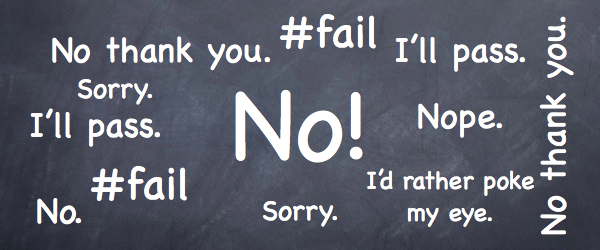We in the PR agency world consider ourselves fairly expert at handling delicate client situations. Here we will occasionally share some examples of how our team has successfully defused, or even leveraged, a potentially negative situation. This post considers the case of the fired journalist.
In recent weeks our team set up a couple of interviews that went well until the PR team members who “owned”each reporter relationship followed up to see about a pub date and, after a few communications, discovered the writers had been let go.
One journalist stayed in touch and though the story was now DOA, he did keep us up to date on his whereabouts. The other writer, despite our best efforts to get in touch, seemed to have vanished. We then reached out to the writer’s immediate superior, by email and phone, to ask what could be done to salvage the story. Hearing nothing after a few days, we knew we had to employ other strategies.
We made the decision to go to the top, to the publisher of the paper. While it isn’t always wise to take your complaint straight to the top (once you get there, you can’t come back down!) We sided with consumer advocate, customer service expert and blogger, Chris Elliott, who notes that there are times when “a direct appeal to the CEO might make sense.”
We drafted a polite, factual accounting of the details and asked that our story be considered for publication since it had already been completed. We heard back in less than 24 hours. While the publisher was personally unable to resolve our situation, suddenly we did hear from the departed journo’s editor, apologizing for the entire incident. Although he was no longer able to run the story, he was conciliatory and very open to working together in the future.
Think you need to take your troubles to the top? Try these tips.
Try to maintain a relationship with your first contact. Most people land on their feet eventually and appreciate staying in touch with someone they’ve successfully worked with before. Leapfrog only when you absolutely must.
Write vs. call. Gatekeepers will go out of their way to prevent your call from getting through and email has a permanent record.
Don’t let emotions get the best of you. No matter how angry you might be about a situation, remain calm and concise in your email, simply laying out the facts and asking for resolution.
Do ask for exactly what you want. If you don’t at least try, you’ll never know!
Thank all parties. Obviously.










